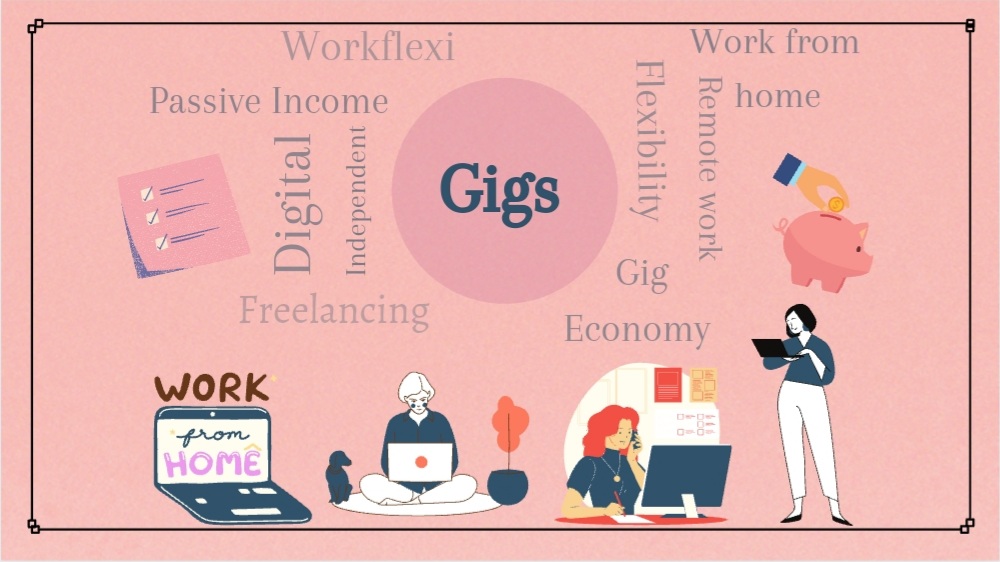Why Flexible Work is the Future: A Freelancer’s Guide to Success

In today’s fast-paced world, flexibility isn’t just a perk—it’s becoming the norm. More professionals are turning to freelancing, and companies are seeing the advantages of a flexible and skilled workforce.
If you’re considering making the shift, this guide will help you understand why flexible work is the future and how you can thrive as a freelancer.
The Rise of Flexible Work
In recent years, the gig economy has grown at an exponential rate. According to research, 39% of American workers worked as freelancers in 2023, generating over $1.4 trillion in economic output. As technology and remote work advance, this trend will continue to grow. In order to meet their demands without being limited by conventional employment models, businesses are increasingly recruiting independent contractors.
Advantages of Flexible Work for Freelancers
1. Work-Life Balance
One major advantage of freelancing is scheduling flexibility. It is possible to plan your day to suit your personal life and productivity levels, regardless of whether you are a night owl or an early riser.
2. Increased Earning Potential
Freelancers are not restricted to a fixed salary. By working with multiple clients and setting competitive rates, skilled professionals can often earn more than their full-time counterparts. Specialized skills in fields like graphic design, software development, and copywriting are particularly lucrative.
3. Reaching to a Global Market
As a freelancer, you can work with clients anywhere in the world, unlike traditional employment, which limits you to local options. This opens up higher-paying projects and increases career growth potential.

Finding the Right Opportunities
To succeed as a freelancer, it’s essential to find consistent work. Here are some effective ways to do that:
1. Use the Best Sites for Freelance Work
There are several platforms like Workflexi where freelancers can find high-quality gigs. well-known websites for freelance employment are
- Upwork
- Fiverr
- Freelancer
- PeoplePerHour
- Toptal (for specialized skills like software development)
Developing a solid profile on these sites and properly presenting your abilities will help you draw more clients.
2. Establish Your Brand
If you work as a freelancer, your reputation is crucial. Maintain a professional LinkedIn profile, build a personal website, and engage with industry professionals to expand your network.

3. Network and Collaborate
Freelancers often get referrals from other freelancers. Participate in forums where potential consumers may be looking for services, join online networks, and go to industry webinars.

Overcoming Freelancing Challenges
Flexibility is one benefit of freelancing, but there are drawbacks as well. Here’s how to tackle them:
1. Managing an Irregular Income
For freelancers, financial risk is one of the main concerns. The best way to combat this is by diversifying your client base, saving during high-income months, and setting aside a financial cushion.
2. Managing expectations from clients
The smooth functioning of projects depends on effective communication. Establishing reasonable timelines and being open and honest with clients will promote long-term partnerships and trust.
3. Avoiding Burnout
Freelancers often enjoy great freedom, but this can sometimes result in working too much. To maintain a healthy balance between work and personal life, it’s important to set clear boundaries, take regular breaks, and follow a well-structured daily routine
The Future of Flexible Work
As technology continues to evolve, so does the freelance landscape. Here are some trends shaping the future of flexible work:
- Rise of AI and Automation: While automation is streamlining many processes, it’s also creating new opportunities for freelancers in digital marketing, AI-driven content creation, and software development.
- Increased Remote Collaboration Tools: Platforms like Slack, Trello, and Asana are making remote work more efficient, allowing freelancers to collaborate seamlessly with clients.
- Greater Demand for Niche Skills: Companies are looking for specialized talent, meaning freelancers with expertise in areas like blockchain, cybersecurity, and UX/UI design will be in high demand.

Flexible work is no longer just a trend—it’s the future. As more professionals choose freelancing, understanding how to navigate this evolving landscape is crucial. By leveraging the right freelance work sites, networking, and maintaining a work-life balance, freelancers can build a thriving career. Whether you’re just starting or looking to scale, now is the perfect time to embrace flexible work and shape your own success story.


